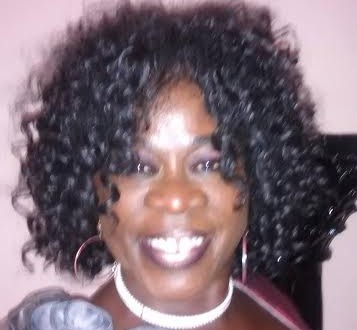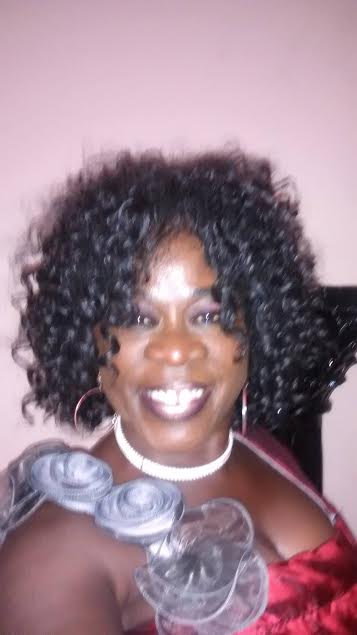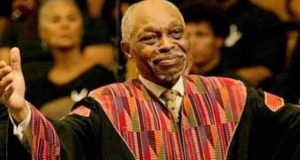“What makes you so strong, black man? How is it that after 200 years of slavery in which skin color was the determining factor of your servitude and social status you could still produce a Frederick Douglass, a Booker T. Washington and a W.E.B. DuBois? What makes you so strong, black man? How is it that after losing 100 million souls in the “Middle Passage” of the slave trade, losing your name, your language and your cultural identity, you could still produce a Benjamin Banneker, a Louis Armstrong, a Duke Ellington, a Paul Robeson, a Jackie Robinson and a painter like Romare Bearden? What makes you so strong, black man? How is it that after two centuries of being someone else’s property and another century of Jim Crow laws, lynching and daily insults, you could still produce a Dr. Martin Luther King, a Malcolm X, a theologian like Howard Thurman and a labor leader like A. Philip Randolph. What makes you so strong, black man? How is it that even though for years they had a law making it illegal to teach blacks how to read, you could still produce classic American authors like a Langston Hughes, a Ralph Ellison, a Richard Wright and a James Baldwin? What makes you so strong, black man? How is it that after having your intelligence and moral worth devalued and degraded by some of the leading intellectuals of modern scholarship, you could still produce a noted pediatric surgeon like Ben Carson, a mathematician like Bob Moses and an inventor like Lewis Latimer, who made electric lighting practical by creating a longer-lasting filament for the bulb? What makes you so strong, black man? How is it that after being considered inferior by leaders of Western civilization, including the man who signed the Emancipation Proclamation, you could still produce a Joe Louis, a Muhammad Ali, a Hank Aaron, a Michael Jordan and an Olympic runner like Jesse Owens, who embarrassed Hitler by winning four gold medals competing against the “master Aryan race” in Germany. And Black Woman, What Makes You So Strong? How is it that after 300 years of being used –you could still produce a Harriet Tubman, a Sojourner Truth, a Fannie Lou Hamer, a Rosa Parks and early 20th-century millionaire Madame C.J. Walker? What makes you so strong, black woman? How is it that after being inculcated with the idea that your skin color is ugly, your hair nappy, your lips too big and your hips too wide, that the less you look like a blonde beauty, the worse off you are, you could still produce a Josephine Baker, an Angela Bassett, a Pam Grier and a Halle Berry? What makes you so strong, black woman? How is it that after being walked on and walked out on, after being popularly portrayed as a sexless Aunt Jemima and an oversexed temptress, you could still produce a Nobel Prize-winning author Toni Morrison, a novelist like Zora Neale Hurston, a poet like Maya Angelou and an Oprah Winfrey? What makes you so strong, black woman? How is it that after men, even your own men, told you were good only for housekeeping and making babies, you could still produce an educator like Mary McLeod Bethune and a teacher like Elma Lewis, whom former Boston University Chancellor John Silber has said: “Mother Teresa doesn’t have anything on Elma Lewis, not one thing” What makes you so strong, black woman? How is it that after being cast as lazy welfare queens, after even sociologists identified you as the primary source of social pathology behind the “breakdown of the black family,” you could still produce a sculptor like Meta Warrick Fuller and a Dr. Jane Cooke Wright, whose pioneering cancer research led to treating cancer patients with chemotherapy and who later became the first black woman to be named associate dean of a medical school in America? What is your source of this incredible human strength and resilience? Samson was a fool to tell Delilah his secret, and I’d be a fool to try and name it in this column. Suffice it to say that the strength lies within all of us – black, white, yellow, red and brown people. And when its power is harnessed, victims are transformed into victors. Thank you, black people, for the many marvelous things you have contributed to this wonderful world of ours. And for reminding us of the paradoxical power of the powerless.” [Reverend Jeremiah Wright].
As we celebrate Black History Month recognition is given to the mighty men and women of valour who paved the way for all of us. We recognize them for their heroic courage, dedication, commitment, and willingness to confront agony, pain, danger, intimidation, and even death… all for the equity for people of color. As we take time to celebrate this notable occasion, we remember how God has delivered His people. We remember the way God led His people through trials. We remember the victories God has given, and we remember the blessings God has bestowed. Why do we remember? We remember so that we can keep in mind the great price paid for our freedom and for our salvation. For it is that memory that connects us and brings our histories and lives together in ways that are life renewing and life giving. So remember the story by recalling the story. Remember the story by making the story your story. Remember the story by doing the story, and remember the story by being the story.
Black History Month… a time of reflection, rejoicing, and recommitting. Black History Month, a time to think about what it means to be an African American. Black History Month, the story of God’s action in the United States. Black History Month, the story of good beating evil, of liberation, of freedom. Black History Month! Whenever I reflect on the legacy of Black History, my mind also reflects on the passage in [Hebrews 12:1-3]. In this passage, God instructs us to listen to the stories of believers who have gone before us—to learn from the stories of the great cloud of witnesses. Here’s how the author of Hebrews says it in [12:1-3]: When life gets hard, and we get weary, and we’re tempted to lose heart, the Bible says, “Remember the great heroes of the faith who faced horrible suffering and great temptation to sin, yet they persevered spiritually because they looked to Jesus.
 Westside Story Newspaper – Online The News of The Empire – Sharing the Quest for Excellence
Westside Story Newspaper – Online The News of The Empire – Sharing the Quest for Excellence





